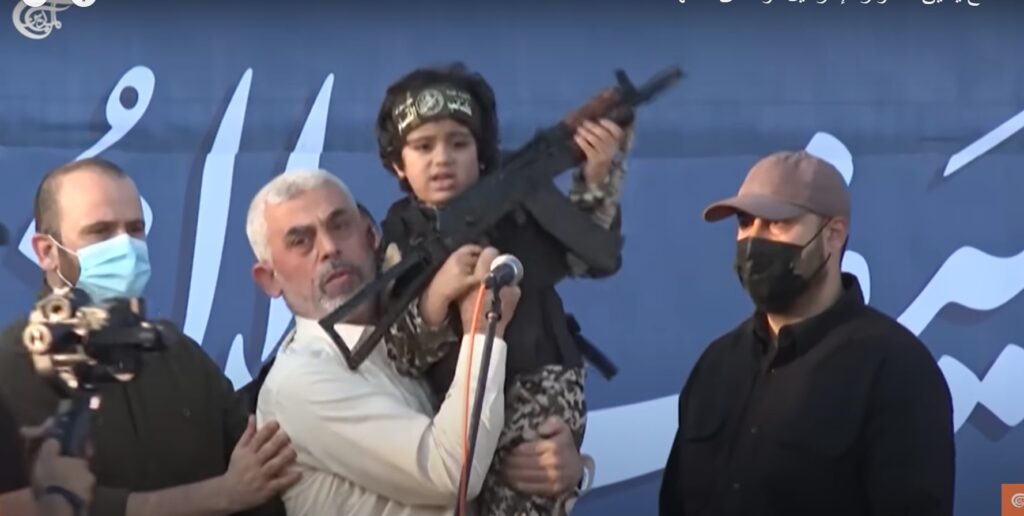The military wing of Hamas has announced its intention to renew suicide attacks within Israel. This declaration has alarmed Israeli security officials, who interpret it as a sign of the immense pressure on Yahya Sinwar, the recently elected head of Hamas’ political bureau.
Sinwar appears to be seeking to open new fronts against Israel following the successful operations by the IDF and Shin Bet in the Gaza Strip.
Israeli security agencies are particularly concerned after yesterday’s attack in Tel Aviv, which Hamas has claimed as a success.
A Hamas terrorist managed to infiltrate Israeli territory, reach Tel Aviv, and detonate a large explosive device weighing 8 kg near a synagogue.
Miraculously, no one was injured due to a malfunction in the device’s activation mechanism.
The terrorist, a resident of a village near Nablus, was killed in the explosion.
He had no prior security or criminal record.
General Peretz Amar, commander of the Tel Aviv district, commented on the incident: “This was an attack involving a large and significant bomb. Had it not detonated outside, it could have caused catastrophic damage. If the terrorist had entered the synagogue, the outcome could have been a terrible tragedy.”
The police, Shin Bet, and IDF have launched a comprehensive investigation, which is currently under a media blackout.
The key question troubling Israeli security officials is whether Hamas is altering its strategy.
Is Yahya Sinwar, under increasing pressure, planning to reintroduce suicide attacks as a means to demonstrate his leadership?
These tactics were used extensively during the Second Intifada in 2000 and earlier in 1996 to disrupt the Oslo Accords.
The military wing of Hamas, led by Yahya Sinwar and his brother Muhammad, is reportedly under significant strain due to the IDF’s intensive military actions in Gaza, which have decimated much of Hamas’ elite military leadership, including Muhammad Deif.
Sinwar seems eager to open new fronts to alleviate military pressure on Gaza and boost Palestinian morale.
Hamas, in coordination with the military wing of Islamic Jihad, has claimed joint responsibility for the Tel Aviv attack.
In an official statement, Hamas declared its decision to renew suicide attacks within Israel, citing Israel’s policies of targeted assassinations and its treatment of Palestinians.
Despite this declaration, Israeli security officials are evaluating whether Hamas truly intends to reinstate suicide bombings or if this announcement is merely a component of the organization’s propaganda and incitement efforts.
While Shin Bet officials have not yet identified a clear trend toward the renewed use of suicide bombers, they have observed an increasing use of explosive devices by terrorist organizations over the past two years.
These devices are often planted on roads in Judea and Samaria or dropped on IDF forces.
The explosives are partially manufactured in northern Samaria, with additional supplies smuggled in large quantities from Iran through Syria and Jordan.
Despite ongoing efforts by the IDF and Shin Bet to curb this smuggling, success has been limited.
Israeli security sources indicate that Shin Bet is actively working to decipher Yahya Sinwar’s intentions.
The security establishment is particularly concerned about potential copycat attacks, as terrorist organizations are leveraging social media to amplify the Tel Aviv attack and incite further violence within Israel.
An additional concern is the leadership of Hamas’ military wing in Judea and Samaria, which is believed to be directed by Zaher Al-Jabarin.
Al-Jabarin, who replaced Saleh al-Arouri after his assassination by the Israeli Mossad in Beirut earlier this year, is also regarded as the “financial brain” of Hamas.
He was responsible for financing the October 7 massacre in the settlements surrounding Gaza and is now one of Israel’s top assassination targets.
Al-Jabarin, who resides in Turkey, is reportedly close to Turkish President Erdogan.
In response to the Tel Aviv attack, the Israeli police have heightened alertness and vigilance in all public places, particularly in central Israel, in preparation for possible further attacks.




